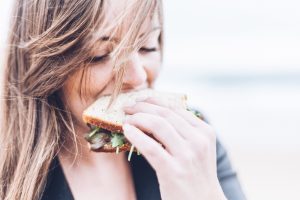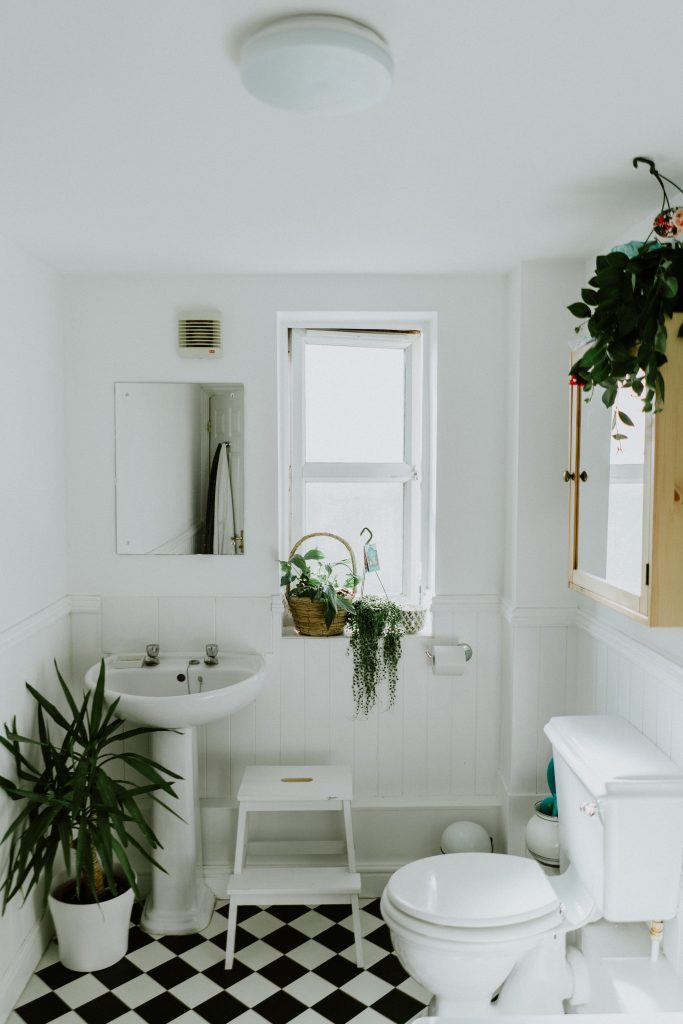Ali Walsh finds out the things you can’t see are the ones that matter the most…
Have you ever played a game of, “Which would you rather?” Generally, it’s a pub-style game where you’re given two ridiculous options to choose between. “Would you rather be set upon by a tiger or swallowed whole by a snake?”. “Would you rather have a big head or one leg shorter than the other?” And if you’re with persistent playmates, they’ll force you to make a decision.
Sometimes I feel like playing the game with coeliac disease. Would I rather have it than…(insert other disease or condition). For me, the answer is always a resounding no. But is it because I don’t think being coeliac is that big a deal? Or is it more a case of ‘better the devil you know’?
One of the things I’m grateful for with coeliac disease is if I don’t want people to know about it, I don’t have to tell them. It’s not like it’s written across my forehead.

Lack of understanding
And there are times when being coeliac doesn’t matter in the slightest. If I test-drive a car, I can zoom off happily from the showroom. If I want to take my children to a trampolining centre, they can bounce around to their hearts’ content. I don’t have to ask multiple questions and wonder if someone will roll their eyes.
But it wouldn’t be the case if I had a physical disability, like cerebral palsy or the loss of a limb. I’d worry I’d feel judged or pitied, especially if I’d started out in life with no disability and could see how people’s attitudes had changed. And wouldn’t it be exhausting to have a visible illness where people ask you questions all the time?
But does having a visible disability mean an immediate understanding of a person’s limitations or are people’s attitudes equally ignorant? There are so many times when people have opinions about dietary requirements, despite having none themselves. How many times have you heard, “You can have a little bit of bread, right?” or “What a great way to lose weight.” No-one would say the same thing to someone with a visible disability. Imagine telling a person in a wheelchair, “Go on! You can manage one stair!” or “At least you don’t suffer in high heels!”
Lack of understanding about a disease is clearly dangerous, but possibly more so if this affects your health.
Take Lucy Whitehall, who recently went out to a restaurant after work. She ordered a gluten-free meal, but started feeling ill after eating it and called the waitress over. It turned out a work colleague had changed the meal to a ‘normal’ one because his sister was on a “faddy gluten-free diet” and he was fed up with it. By this time Lucy was shaking and crying, already experiencing tummy pains and knew there was worse to come.
There again, idiots aside, at least with most situations we can still join in. Whereas an alcoholic may have to explain why they’re not drinking, a coeliac can still order a pint at the pub – it just needs to be cider, not beer.
If you play 5-a-side every week you don’t have to forego your usual position post-diagnosis. And the majority of us won’t have to change jobs (or worse, give up work altogether).
And one of the good things about coeliac disease is it is consistent: avoid gluten and you won’t suffer. But what about conditions like multiple sclerosis or Crohn’s disease where physical symptoms can come and go? It must be difficult explaining to people there are times when you’re capable of doing something and times when you’re not.
But I don’t think that means coeliacs have it easy. Sure, I don’t have to tell people about my disease. But that can make me seem like an outsider, like someone who deliberately won’t join in. If I decline an invitation to dinner but don’t say why the host could take it personally. Perhaps I don’t like them. Maybe I don’t rate their cooking. Do I really want to have to tell them I’m awkward to cater for and get anxious about cross-contamination? And what about children? One of my coeliac friends said the school dinner ladies thought she was being fussy and would tell her to eat up. She obeyed and would then suffer in silence.

Eliminating risk
There’s also the problem of what happens when you’ve been glutened. I am very grateful to the person who designed the ‘not all disabilities are visible’ sticker for the disabled toilet. If you’ve got to make an emergency dash for the loo, the last thing you need is someone tutting at you afterwards because they don’t think you qualify.
And we shouldn’t ignore the cumulative effect of being made to feel different. It might ‘only be food’, but the person who heightens our frustrations by telling us this clearly doesn’t understand what it does to our psyche. We shouldn’t have to downplay the isolating effect being coeliac can have. Nor should we feel we’re living on a knife-edge, wondering when we’ll next get sick because of a mistake with our food. And we can take all the precautions we like, but from human error to product recalls, whether we’re eating at a friend’s or relying on a pre-packed meal, there’s no way of completely eliminating risk.
On-going concerns
There’s also the whole problem with finding out what’s wrong in the first place. Coeliac UK tells us the average coeliac takes 13 years to diagnose and sometimes ‘five years for symptoms to disappear after diagnosis’. So who can blame us for moaning about having constant diarrhoea, tummy pains, fatigue and depression? Many people feel relieved after they’ve got an accurate diagnosis, but five years is a long time to get through (although, thankfully, a rarity). Plus, the long-term health concerns can be very serious. I’m sure we’d all rather not be at risk from osteoporosis and bowel cancer.
Someone recently asked me what I miss most about gluten and my answer was ‘spontaneity’. I’d love to base my decisions on what I’d like to do, rather than focusing on whether my diet will fit in first. And I’m sure it’s the same for those with visible illnesses. Wouldn’t it be great to do what you wanted for a change? Not sigh and wonder if it’s more trouble than it’s worth.
Maybe what we really need to learn is that life isn’t a game of comparisons. There are very few people who really, truly have it easy, and it’s not helpful to think it. But if we continue to educate, if we make sure people know our needs, perhaps we’ll spare the time to listen to others and what they need, and surely that’s humanity at its best?

